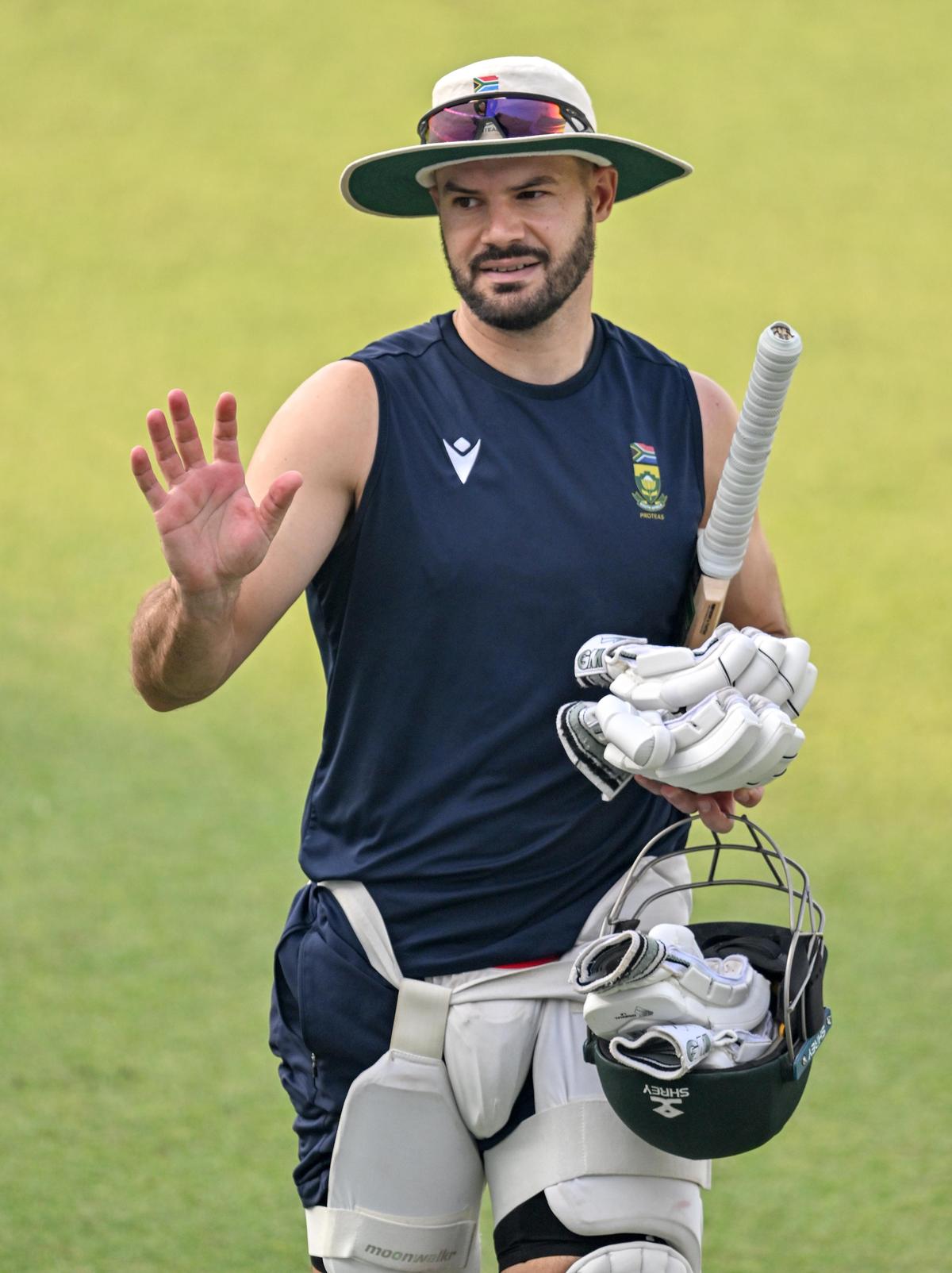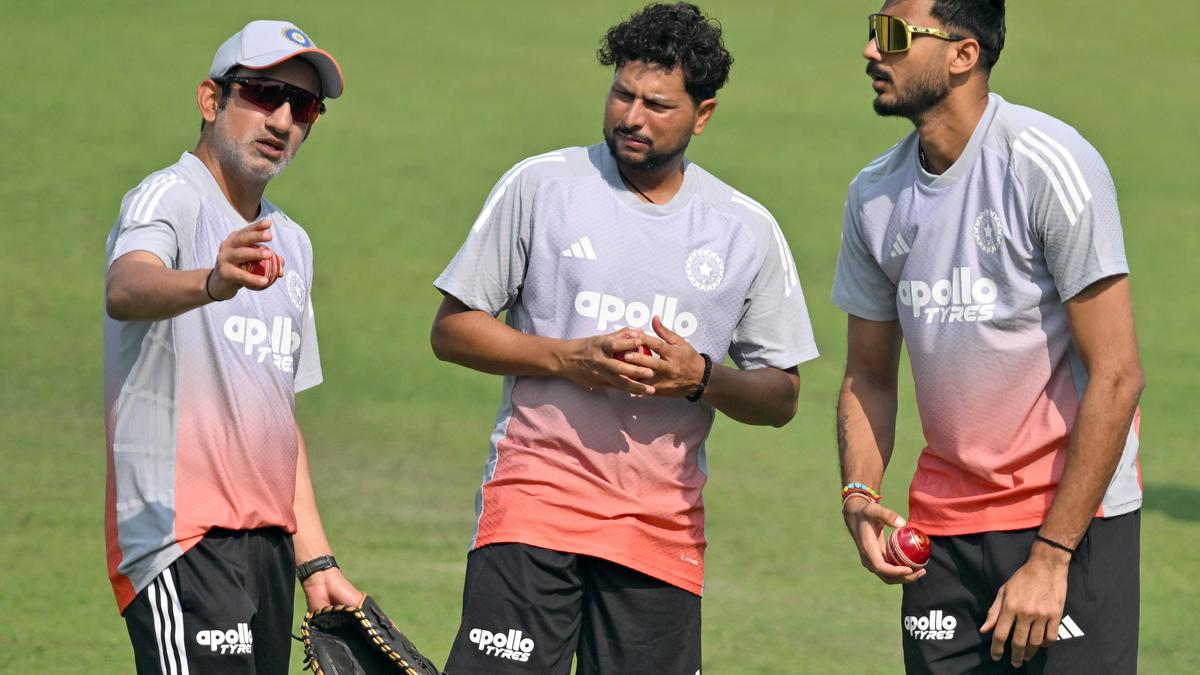“South Africa arrive with Rice, Wessels and Cook,” ran one of the more creative headlines back in November 1991 when, after a 21-year hiatus, the Proteas made their much-anticipated comeback to international cricket.
The apartheid-driven ban from 1970 came to an end after a whirlwind sequence of events that culminated in a hastily put together three-match One-Day International series, with the first of three matches scheduled for Kolkata’s Eden Gardens on November 10. There was a certain poignancy in India being the launchpad for the African nation’s second coming in international cricket, given that Nelson Mandela, their charismatic champion, was inspired by the principles and philosophies espoused and practised by Mahatma Gandhi.
Armed with skipper (Clive) Rice, (Kepler) Wessels and opener (Jimmy) Cook, the South Africans gave an excellent account of themselves. The ‘rebel’ tours, facilitated by Dr. Ali Bacher, and the fact that numerous South Africans had honed their skills in county cricket in England, meant the visitors weren’t out of their depth despite their long absence from country vs country cricket. In a low-scoring contest in the City of Joy, the South Africans pushed India all the way despite posting just 177 for eight in their 47 overs, the unmistakable class of Allan Donald pushing India to a corner until the brilliance of a very young Sachin Tendulkar (62) and the industry of Pravin Amre (55) combined to take India to a tense three-wicket victory.
Two days later, India sealed the series with a 38-run win in Gwalior but South Africa ended the tour on a high by comfortably hunting down a mammoth (in those days) 288 with eight wickets to spare in a day-night contest in Delhi on the back of a powerhouse batting display helmed by Wessels, Peter Kirsten and the inimitable Adrian Kuiper. The cricket world had been forewarned; South Africa might have been forced absentees for long, but they wouldn’t be just making up the numbers.
For years thereafter, in all formats, South Africa were formidable without summoning the wherewithal to go the distance. Such was their meltdown in key moments at ICC tournaments that the distasteful sobriquet of ‘chokers’ came to be associated with them; in the debris of shattered dreams and a bucketful of unchecked tears, their tryst with ultimate glory in the inaugural ICC KnockOut Trophy (the original avatar of the Champions Trophy) in Bangladesh in 1998 was conveniently forgotten as they were beaten ad nauseum with the stick of repeated failures in major tournaments.
All that is now a thing of the past. This June, South Africa made up for years of heartbreak and bitter disappointment with a stunning come-from-behind victory over Australia in the final of the World Test Championship at Lord’s. It was sweet redemption, the culmination of years of hard labour marked by self-doubt when it came to the crunch; the rise from eternal bridesmaids was emphatic and complete. South Africa were World Champions. Finally.
The unlikely (to many) figure to lead them to the Promised Land answered to the name of Temba Bavuma. Mild-mannered, softly spoken, understated and standing just five feet four inches in his socks, Bavuma wasn’t the most popular choice as skipper and leader until he silenced the critics in typically no-fuss fashion. The WTC final was a personal triumph for the 35-year-old, too; having conceded a deficit of 72 and been tasked with scoring 282 for an upset victory (for that’s what it eventually was), South Africa needed a huge dollop of inspiration and that came from their courageous captain.
Overcoming a terrible hamstring injury, he strung together a match-turning stand of 147 for the third wicket with Aiden Markram, the wonderful opener who played the innings of his life with 136 of the finest. From very early in his innings, Bavuma could hardly complete a run in anger, yet he chose mind over matter, refusing to retire hurt when the temptation might have been overwhelming. Bavuma was dropped on two by Steve Smith. He made Australia pay with a crafty 66, an innings of such guts and gumption and character that the others had no option but to follow suit.
The wild scenes of celebrations once Kyle Verreynne brought up the winning run showed what the result meant to a team, to a cricketing entity, to a nation. Back home, South Africans went berserk, the sometimes-divided milieu coming together to hail rare success on the cricket park. At Lord’s, players young and old, those who had yet to endure untold implosions and those had been an integral part of said implosions, came together to savour the sweet taste of victory, egged on by a multitude of retired superstars in the audience including former captains Shaun Pollock, Graeme Smith and AB de Villiers. It was a popular victory on all counts; not only had the Aussies been tamed, but the likeable South Africans finally had their place under the sun.
The WTC crown wasn’t an end in itself, of course. For South Africa, the trick now is to build on those unquantifiable gains and continue to make their presence felt globally. The belief was that the silverware would inspire a succession of success stories; that belief will be put to the sternest of examinations over the next two weeks when Bavuma’s men challenge India in the latter’s backyard in another of those annoyingly unfulfilling two-Test showdowns that leave you craving for more.
South Africa’s only series victory in India came more than a quarter of a century back, in early 2000 when Hansie Cronje was the captain. They haven’t won a Test in this country since February 2010 when, under Smith, they conjured a commanding innings victory at the VCA Stadium in Nagpur. India were a severely weakened batting outfit on that occasion – Rahul Dravid (injured jaw) and V.V.S. Laxman (split webbing) were out of commission and Rohit Sharma’s guaranteed debut had to be delayed owing to a freak injury a few minutes before the toss, forcing reserve stumper Wriddhiman Saha to debut as a specialist batter – but South Africa weren’t complaining.

Now, against a full-strength if still slightly undercooked Indian batting group, South Africa must put their best foot forward if they are to at least replicate their deeds in Pakistan, when they bounced back from the loss of the first Test to square the series 1-1 last month. Coach Shukri Conrad acknowledged that India in India was a far more challenging opponent than Pakistan in Pakistan, while Bavuma went so far as to say that winning in India would come a very close second to defeating Australia in the WTC final. Maybe inadvertently, the coach and the captain have put pressure on themselves. Or maybe intelligently, they have given their troops the perfect motivational fodder. We shall know in a fortnight.
South Africa couldn’t have asked for a better venue to try and translate their belief into reality. The Eden, hosting a Test after six years, has a tendency to help the quicker bowlers early each morning and, for some strange reason, in the post-tea session, and South Africa have mighty fine pacers, not least the multi-skilled Kagiso Rabada. But what will genuinely fan the flames of hope is the availability of excellent spinners in the experienced duo of Keshav Maharaj and Simon Harmer, with Senuran Muthusamy as the third cog. South Africa have seldom possessed this array of spin riches to fall back on, which promises to add another exciting dimension to a battle India have shaded in the past without completely blowing their opponents away. For nearly a decade and a half, South Africa were the most competitive overseas team on Indian soil until falling apart after 2010. India have won six of the last seven showdowns, the only no-result stemming from four successive no-show days in Bengaluru in 2015, in de Villiers’ 100th Test. Recent history therefore strongly favours India, even without Rohit, Virat Kohli and R. Ashwin, but everybody knows the perils of taking South Africa for granted.
This is India’s last assignment in the ongoing WTC cycle for the next nine months; not until they visit Sri Lanka for a two-match faceoff in August will India embrace Test cricket again, so they will be determined to maintain their home hegemony that was bested by an inspired New Zealand last winter. South Africa will have gleaned crucial tips from how the Kiwis crushed Rohit’s men 3-0, but India have undergone myriad personnel and mindset changes in the last 12 months and are unlikely to be as accommodating as they were last year, when they were winkled out by Mitchell Santner and Ajaz Patel.
Shubman Gill, seven Tests young as captain, has taken leading from the front to a whole new dimension with five centuries and counting. He is still finding his feet from a leadership perspective, but is showing himself to be a quick learner. By admitting that, on hindsight, he would have been better off not enforcing the follow-on in Delhi against West Indies instead of eking out 200 overs on the trot from his bowling group, he reiterated that he wasn’t averse to putting his hand up and taking responsibility for a questionable if well-intentioned decision. His energy and enthusiasm are infectious, and he has the whole-hearted support of the senior group of K.L. Rahul, Ravindra Jadeja and Jasprit Bumrah, as vital for their wisdom as for their exploits on the field of play.
Without attempting to veer away from his natural grain, Gill has emerged as the undisputed leader who is happy to allow his senior lieutenants to steady the ship when the water has gotten a little choppy. That points to a leader secure and confident enough to take a step back if the need arises, without totally ceding control which could then trigger anarchy and spark the inevitable result of having too many cooks. England in his first series in charge was a huge test of Gill’s mettle, a test he passed with flying colours. The World champions at home will be no less arduous an exercise, one that should energise and excite Gill no end. Bring it on, already.

